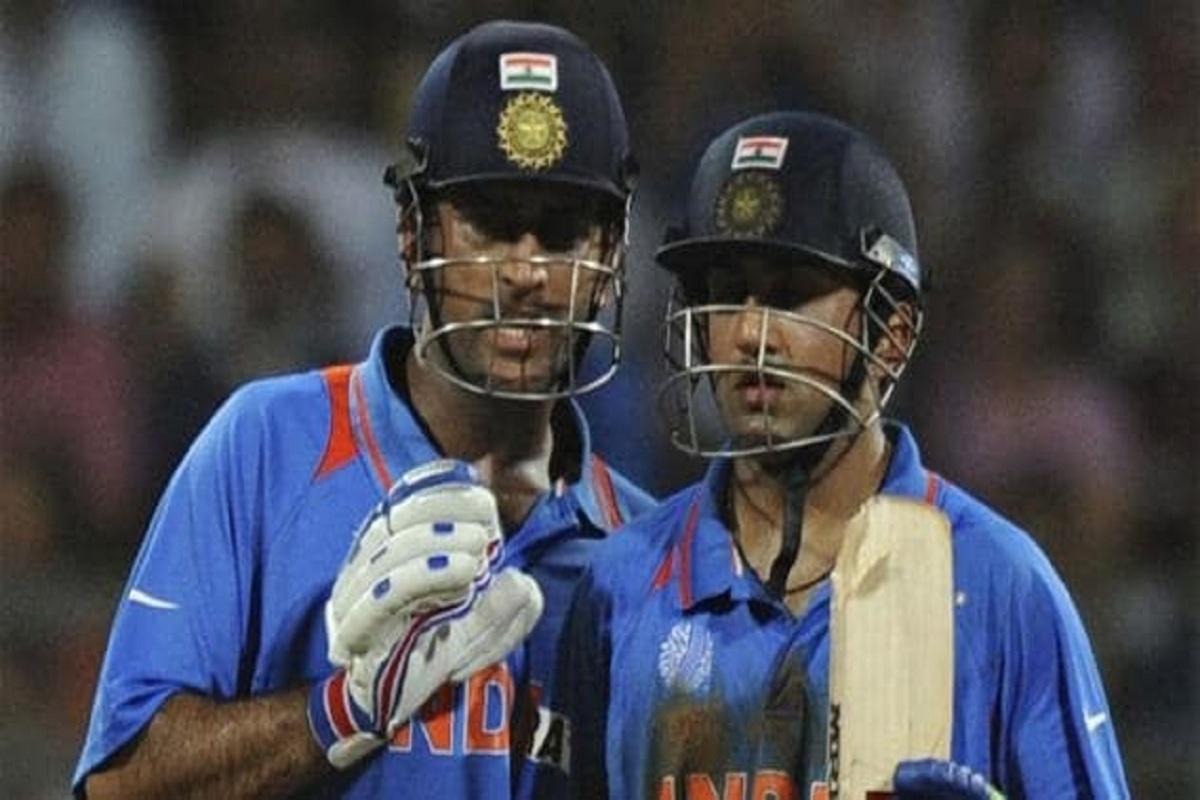IML 2025: Sachin & Yuvraj reunite after a decade against Sri Lanka
Two of India's greatest champions, Sachin Tendulkar and Yuvraj Singh,are set to reunite on the field after a decade, donning the iconicIndia blues once again.
While not mentioning Dhoni by name, Gambhir argues that the individual and their public relations team were responsible for elevating Dhoni to hero status for the 2007 and 2011 World Cups.

(File Photo: IANS)
Former Indian cricketer Gautam Gambhir has expressed his disapproval of the excessive “hero worship” culture in Indian cricket. He believes that the focus on star players like Virat Kohli and MS Dhoni has overshadowed the contributions of other performers, and calls for broadcasters and media to shed light on the achievements of the entire team.
While not mentioning Dhoni by name, Gambhir argues that the individual and their public relations team were responsible for elevating Dhoni to hero status for the 2007 and 2011 World Cups. However, Gambhir asserts that it was actually Yuvraj Singh who played a crucial role in guiding India to the finals of both tournaments.
Advertisement
Gambhir stated, “He (Yuvraj) always says I won the World Cup, but I believe that the man who took us to the finals of the 2011 and 2007 World Cups was Yuvraj Singh. I think he was the man of the tournament in both tournaments.” While acknowledging that Yuvraj did win the award in 2011, Gambhir points out the lack of recognition for Yuvraj’s contributions in discussions about those World Cups, attributing it to marketing strategies that focus on promoting one individual above the rest.
Advertisement
The former cricketer emphasizes that cricket is a team sport and no single individual can win a major tournament alone. Gambhir believes that India’s obsession with individual players has hindered the team’s success in winning ICC trophies, asserting that the country is more obsessed with individuals rather than the collective team.
Gambhir criticizes the Indian cricket landscape, stating, “Our country is not a team-obsessed country but an individual-obsessed country.” He highlights the importance of a team-oriented approach, as seen in countries like England, Australia, and New Zealand, where the team takes precedence over individual players.
Furthermore, Gambhir draws attention to the hero-worshipping trend that dates back to 1983 when Kapil Dev led India to its first World Cup victory. He questions why players like Mohinder Amarnath, who played a pivotal role in the tournament, are often overlooked in discussions and media coverage.
Gambhir concludes by urging broadcasters and media outlets to give credit to the entire team rather than solely focusing on individual players. He believes that by shifting the narrative to a team-centric approach, India can enhance its chances of winning ICC tournaments once again.
Advertisement